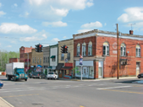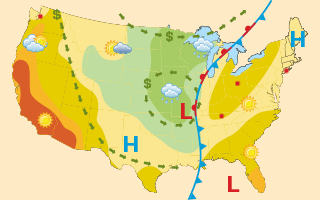Take an inside look at how four local markets fared last year and where they are headed in 2015.
By Gayle Bennett
If in 2013 the housing market shook off the cobwebs of the economic downturn, in 2014 they stayed off.
Nationally, the median sale price climbed to $208,500, the highest since 2007 ($219,000) and a 5.8 percent increase over the 2013 price, according to the National Association of REALTORS®. And while the total number of sales in 2014 decreased 3.1 percent compared to 2013, with supply picking up in the second half of the year, RealtyTrac reports that foreclosure filings in 2014 were at their lowest since 2006.
But all real estate is local, and every market is unique. The Residential Specialist examined how four very different local markets fared in 2014 and what 2015 has held in store so far. While some areas are hotter than others, demand is steady in all four locales, and prices continue to climb.
| Median Sale Price | ||
|---|---|---|
| Local Market | 2013 | 2014 |
| Southampton, New York | $1.9 milion | $1.5 million |
| Nashville, Tennessee: Single-family homes | $190,370 | $208,437 |
| Nashville, Tennessee: Condominiums | $155,135 | $167,283 |
| Seattle, Washington: King County | $372,000 | $399,790 |
| Seattle, Washington, Snohomish County | $279,950 | $308,000 |
| Knox County, Ohio | $108,000 | $122,250 |
{tab Southampton, NY}

Southampton, New York, is a beachside community located 90 miles outside New York City. Over the last couple of years, this luxury-vacation-home market has boomed in tandem with Wall Streets bull market, report Paul and Joan Robinson, both CRSs with Southampton Village Real Estate.
Compared to 2013, sales in 2014 were up (204 in 2014 vs. 144 in 2013) and the median price was down ($1.5 million vs. $1.9 million). However, another statistic provides some insight on that price decrease: There were 44 demolitions/tear-downs in 2014. When there are 204 sales and 44 demolition/tear-downs, what thats telling me is that a lot of people are just buying the land, Paul Robinson says. I expect this year the median sales price will be a record high because well be looking at inventory of brand-new houses versus old houses that are being torn down.
The Southampton ZIP code is 35 square miles and consists of the Village of Southampton and the hamlets of Shinnecock Hills, Tuckahoe and North Sea. Currently, the Robinsons report that houses in the $2 million to $5 million range in the Village of Southampton are very hot, but demand is high and supply is low throughout all sectors of the market.
This year things are crazy because theres very little inventory, Paul Robinson says. In fact, demand is so high that the Robinsons, who live in Southampton themselves, are consistently solicited by other agents to sell their home. A week doesnt go by without some real estate agent sending us an email or a letter asking if wed like to sell our home, says Joan Robinson. Thats the climate thats out here now; the demand is much greater than the inventory.
{tab Nashville, TN}

According to David Binkley, CRS, with Village Real Estate Services, the recession shifted peoples housing priorities in Nashville, Tennessee. Interest in the suburbs, which had been high since the 1970s, started to wane. When things got tight with the economy, we noticed there was demand to be closer to town, Binkley says. For many, 2,000-square-foot homes in the city that offered a much shorter commute were more appealing than larger houses in the suburbs.
Also driving interest in the city was the fact that Nashville was and is booming. All these fantastic restaurants and bars were popping up, the streetscapes were improving and all the infrastructure was pouring in, Binkley says. Even in the middle of the recession, the city was fueled by pretty good growth. And that just continues to flourish as Nashville grows like a weed.
Nashvilles 2014 sales increased almost 8 percent compared to 2013. The median price of a single-family home increased from $190,370 in 2013 to $208,467 in 2014, and median condo prices increased from $155,135 to $167,283. Binkley says condos in Nashville are generally high-amenity buildings in the middle of town. They are selling for a high price per square foot.
This year and beyond looks good for Nashville. We are projected to grow by almost a million people in the next 25 years, Binkley says. This population boom is fueled in large part by the growth in the health care industry, which along with the music industry, is the core of Nashvilles economy.
Im seeing investors go into areas that they would have never touched before, buying up little bitty lots around town, Binkley says. Its a land grab. Everyone is seeing the writing on the wall about the urban renaissance.
{tab Seattle, WA}

The Seattle real estate market has been pretty warm for the last two years and is continuing to heat up, says Gordy Marks, CRS, with RE/MAX Northwest REALTORS® in Kirkland, Washington. Marks works in both King County, which is closer to most of the areas tech jobs, and in Snohomish County, which is about an hours commute from many of the job-heavy areas, but is more affordable.
In 2014, sales in King County dipped slightly due to lower inventory, and the median price increased from $372,000 in 2013 to $399,790. In Snohomish County, year-over-year sales increased slightly, and the median sale price increased from $279,950 to $308,000.
On the whole, single family houses are doing better than condos in the Seattle area. The condo market in many areas has not completely recovered from the fall from the heights of 2007, Marks says.
The hottest area right now in Seattle is West Bellevue in the Eastside region of Seattle. Marks sees a number of international buyers purchasing homes in the $1 million to $4 million range, often for cash. Buyers are attracted to that areas excellent schools and short commute times.
Houses in the outer suburbs in Snohomish County are seeing slower growth. Our market is driven a lot by commute time, Marks says. Some areas in Snohomish County are still working their way out of short sales, which are now rare in King County.
When Marks looks at the overall low inventory and high demand, he sees a strong 2015. He predicts sales price growth of 8 to 10 percent in King County and 5 to 6 percent in Snohomish County.
We have a super-strong job market in tech, biotech and the medical fields. Google is doubling the size of its campus here in Kirkland, Microsoft has still been strong and Boeing has a tremendous amount of new orders on its jets.
{tab Knox County, OH}

Numbers can be deceptive. Year-over-year sales in Knox County, Ohio, a rural area north of Columbus, were similar (538 in 2013 and 536 in 2014), but the median sale price jumped by 13 percent, from $108,000 in 2013 to $122,250 in 2014.
However, that increase isnt truly indicative of a double-digit jump in home values, says Sam Miller, CRS with REMAX Stars Realty in Mount Vernon, Ohio. There were fewer bank-owned sales and short sales in 2014. Since 2013 had a higher percentage of those sales, they artificially made the sales prices appear lower, Miller says.
But 2014 was still a good year, and Miller sees 2015 starting out well. We are hot in the mid-range of $100,000 to $150,000 because that monthly payment is not significantly higher than what someone would pay for a nice rental, Miller says. Because Knox County is rural, homebuyers can qualify for several federal low-down-payment and zero-down-payment programs. That opens up opportunities for homebuyers who havent saved much money but have a decent income.

Popular areas in Knox County include the waterfront homes in the lake resort area of Apple Valley, which caters to second-home and retired buyers. That market is in short supply, Miller says. Also, non-subdivision properties that have 2 to 50 acres have been popular with the segment of homebuyers who want to own animals or grow their own food. They are acquiring property here for that reason, and they can commute to work in Columbus, Miller says.
Miller predicts 2015s sales data will show legitimate growth. This year we will see an increase in the average sale price a real increase, not like last year, when it was due to lack of bank-owned properties.
{/tabs}
Keep track of all the latest home sales data and information at REALTOR.org.








